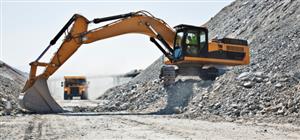
The construction business is a significant contributor to the global economy. According to Statista, the global construction equipment market was estimated to be $145.5 billion in 2015, with the North American market holding a position as the second largest market worldwide for construction equipment. Companies engaged in construction projects know the impact of crawlers, dozers, backhoes, excavators, loaders, earthmoving equipment, cranes, drilling equipment and more on their ability to perform effectively and sustain their profitability, but they don’t always know the current equipment values for the assets they have in their inventory.
Construction equipment often takes a beating, given the arduous conditions under which it is usually called to perform, but it can still have a value to the company for its useful remaining life and also as a potentially saleable asset. A professional machinery valuation can give managers the edge they need in the decision-making process, and can also serve as a protective factor in the case of untoward events. Here are the top ten reasons construction companies should keep in mind when considering whether or not to have a construction equipment appraisal:
- Tax Purposes: An accurate and updated record of equipment values is helpful in supporting depreciation claims when filing income tax returns.
- Business Analysis Purposes: Business decisions are made every day which require accurate input and data. A manager needs to rely upon solid equipment valuations when deciding whether to expand, purchase additional equipment, seek additional funding, or bid on new projects.
- Sale of Business: A prospective buyer will want to know precise equipment values in order to ascertain a fair purchase price and initiate asset record-keeping.
- Bankruptcy: If the business does fail, it will be necessary to have an accurate machine appraisal for all equipment in order to place a value on the company’s assets for creditors.
- Dissolution: Whether a business is dissolved completely, or one partner buys out the other, a valuation is required to ensure an equitable division of assets or acceptable purchase price.
- Divorce: Business assets will be treated similarly to personal assets when dividing up property during a divorce.
- Insurance: Construction companies need to be as prepared as possible for the unexpected, so a sufficient amount of insurance coverage is required. If equipment is lost, damaged, or destroyed, current appraisal records will be required in order to negotiate a reasonable settlement amount with the insurance company.
- Loans: Existing equipment is often used as collateral when securing bank financing for operating purposes, expansions, upgrades, or purchase of additional equipment. Loan officers will want to see sufficient data to justify any loan amounts being considered.
- Donation: A business may decide to donate some of its older or outmoded equipment to a charitable organization in order to receive a tax consideration. Any donation listed as being over $5,000 on the 8283-tax form will require an equipment appraisal for IRS purposes.
- Estate Considerations: The executor of an estate must be able to reasonably demonstrate equipment values to all the heirs and the government to ensure an equitable distribution of assets.
When a business needs a construction equipment appraisal for any reason, it is best if the report is assembled and reviewed only by an accredited appraiser. These professionals are well-trained and experienced in providing accurate equipment appraisals. If the appraisal report does not meet the Uniform Standards of Professional Appraisal Practice (USPAP) guidelines, it is not considered a “qualified appraisal,” and will not pass intense scrutiny from buyers, attorneys, bankers, the IRS, or the courts.

